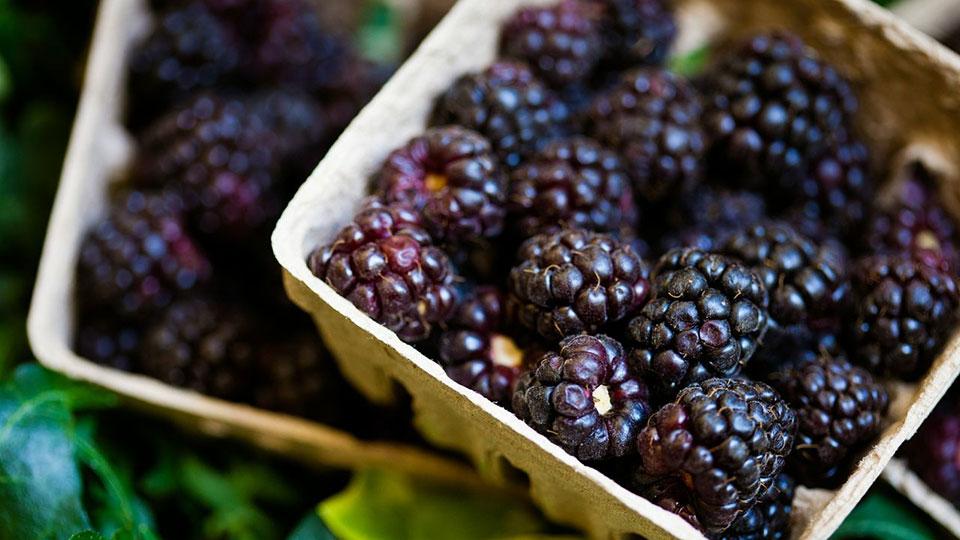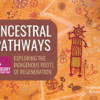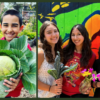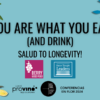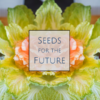Over the past seven years, the annual Berry Good Night dinner has aimed to connect and celebrate local and sustainable farmers, ranchers, fishermen, chefs, and vintners.
In September 2017 we debuted a new format (#BGN100) to increase interaction and engagement. After submitting responses to a brief questionnaire, 100 “idea ambassadors” were hand selected for their commitment toward fundamental change in our food system.
Over the course of 2018, we are profiling the participants to highlight their efforts and create greater awareness and connection within our community.
This month we focus on food resilience and speak with the following regenerative agriculture advocates and conservationists:
- Rita Rayman, regenerative agriculture advocate and conservationist
- Leslie Booher, seaweed farmer and ecologist
- Bill Toone, conservationist, aquaponics and fuel efficient-stove advocate
Rita Rayman, The Guardian Project
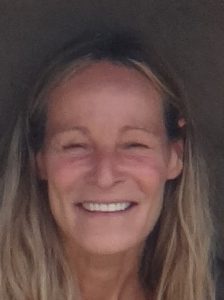
Rita Rayman
I am focusing my energies on a more equitable and environmentally balanced, peaceful and sustainable future for our global family.
Having already spent years in philanthropy, and having our own family foundation, my husband Jeff and I knew that charitable handouts have proven to be mostly ineffective and unsustainable, and strip people of their independence and dignity. We co-founded The Guardian Project (TGP), an agriculture and conservation initiative that now spans five East African countries, collaborates with six national parks, a conservancy and two sanctuaries, has improved the lives of over 12,000+ farming families and has been endorsed by Dr. Jane Goodall.
With The Guardian Project, our hope is to facilitate a lasting and regenerative change, in a way that we are almost invisible in the process, other than having seeded that change. As our farmers like to say, this is their project! The motto is: co-operation + shared vision + strategy = success. With no administrative costs and no overheard, 100% of every donation goes directly to sourcing animals, crop seeds and trees.
I am also the founder and consultant for Bucket, a boutique travel company specializing in engaged travel in East Africa.
Did you make any interesting connections at BGN100?
Of course; being a project focusing on soil regeneration, learning about Kiss the Ground has provided a goldmine of information for us.
But a most meaningful coincidence at BGN100 was that I, from Toronto, Canada, should meet Simon, founder of HIVE Uganda, from Gulu, Uganda, at an event in La Jolla, California, and realize that a symbiotic relationship existed between us. Flash forward to a collaboration between The Guardian Project (TGP), some of their Ugandan farming cooperatives, and HIVE Uganda, an organization of blind and partially blind bee-keepers.
- TGP will provide seeds to both groups.
- The Kamdini cooperative will provide goats and compost training to HIVE.
- HIVE will provide bee-keeping training, start-up, and monitoring to the Kamdini cooperative.
- An exchange of knowledge, skills, and product creating a win-win for both, by improving pollination, scaling up, expanding production, generating income, and empowerment through a collaboration that respects human differences.
Diversity in togetherness.
What other ways do you connect with like-minded members of the community to further your mission?
Besides word of mouth connections and internet access to information, I am a shameless global promoter of The Guardian Project, which opens the door to all kinds of exchange and enlightenment.
When you’re not working, what do you enjoy doing?
I volunteer for many varied initiatives and projects both locally and abroad, using my artistic practice to draw awareness to social issues. I travel extensively to increase my understanding of the world we’re living in. I love to garden, and I grow fruits, vegetables and herbs in the city, and compost my organic material to create fertilizer – walking my talk.
On the subject of food resilience, do you have a favorite anecdote or experience you’d like to share?
Most subsistence farmers are two crop rotations away from famine. If the rains fail to come, or the crops are washed away in floods, it is devastating. After almost no rain during a growing season, a farming co-operative that we’ve worked with still managed a harvest that could tide the community over, thanks to their hard work and implementing The Guardian Project methodology of feeding the soil organically and covering it with mulch.
Leslie Booher, Sunken Seaweed
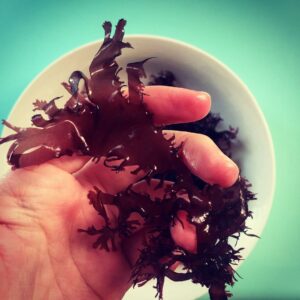
Sunken Seaweed’s macroalgae
Please tell us briefly about your work and your goals.
Sunken Seaweed is a regenerative aquaculture startup led by me and my partner, Torre Polizzi. We are both marine ecologists dedicated to restoring ocean ecosystems by farming a beyond sustainable crop of sea veggies. Sunken Seaweed’s mission is to increase marine biodiversity, reverse climate change effects, and promote a new, healthy relationship between people and seafood.
We are currently partnered with the Port of San Diego as part of their Blue Economy Incubator, to pioneer one of the first kelp farms in California and to demonstrate the feasibility of seaweed aquaculture in San Diego. Our pilot project is located on the North Embarcadero at Pier 1, where we will grow several species of native marine macroalgae on anchored lines. We envision a future with several kelp farms along the California coast, growing local food and improving biodiversity in some of the planet’s most precious ecosystems.
Sunken Seaweed will also collaborate with kelp ecologists at San Diego State University in the areas of farm structure, grow out methods, and harvesting techniques. Harvested seaweed will be produced as a culinary product and eventually marketed directly to chefs and distribution companies.
Did you make any interesting connections at BGN100?
The BGN100 was brimming with networking possibilities, and Michelle, the host, facilitated some great interactions that evening. The conversations from BGN100 helped shape our course and really showed how supportive the community is to regenerative aquaculture in San Diego. Connecting with those involved in the local seafood world was very special for us, as there was a lot of enthusiasm regarding seaweed from these folks.
What other ways do you connect with like-minded members of the community to further your mission?
At Sunken Seaweed, we wear two hats; first and foremost, we are ecologists with a deep concern for ocean health. By staying connected with researchers from around the globe, we can make the best-informed decisions for our farming methods. On the other end, as entrepreneurs, we seek out other regenerative business leaders who have planetary health in mind. Surrounding ourselves with other enterprises that put planet before profit has really helped us enter the business world in a way that feels right for our company. Perhaps most importantly, we connect with students, who really will take the lead on the future problems of feeding the world, so collaborating with them on our farm is crucial.
When you’re not working, what do you enjoy doing?
We started this business because of our love for the coastline, and we haven’t gotten tired of it yet! When we’re not working, we enjoy scuba diving, exploring new beaches in Baja California, or just relaxing at home in Ocean Beach with our cat, Tybalt.
Do you have a favorite anecdote or experience you’d like to share?
Torre and I worked as marine ecologists in Northern California for a number of years, and while doing that work we watched some of the most resilient ecosystems collapse in front of our eyes. That experience was heart-breaking and we knew then that in order to really address this problem, we needed to use business as a tool for change. Not only is farming seaweed an act of ocean stewardship, but it can generate the food and feed necessary for our growing world population. In the face of human-driven climate change, seaweed requires no freshwater, no land use, no pesticides, and no fertilizers to grow. It sequesters Carbon dioxide, Nitrogen, and Phosphorous, the three leading causes of ocean acidification and dead zones. On top of its environmental perks, it is a truly unique and nutritious food source, which people from all over the world have been consuming for centuries.
Bill Toone, ECOLIFE Conservation
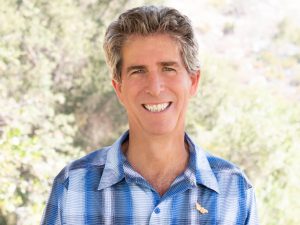
Bill Toone
Please tell us briefly about your work and your goals.
I am the director at ECOLIFE Conservation. Our goal is to implement programs that are a win-win for people and the environment. Through our programs in sustainable agriculture at home and safe fuel-efficient stoves in Mexico and Uganda we hope to demonstrate that conservation is a good investment in our future both from a health and business perspective.
Agriculture is the leading contributor to climate change and its expanding environmental footprint is the largest contributor to habitat loss and species extinction. We reach over 100,000 local students with programs in sustainable agriculture and operate a model farm to promote aquaponics for California’s vegetable industry. We produce common vegetables like lettuce, chard, spinach and other leafy greens organically using 1/10th of the space and 1/10th of the water. Our crops are harvested in 2/3rds the time of traditional agriculture. In head lettuce alone systems like this could save 50 billion gallons of water in California.
The burning of wood and charcoal is a leading contributor to short-term black carbon climate affects while the destruction of forests and the release of CO2 contributes to climate change. Indoor cooking fires are also the single largest killer of human beings – far exceeding the cumulative deaths from breast cancer, AIDS, malaria and dirty drinking water. Our stoves are permanent, use at least 50% less fuel and vent toxic smoke out of kitchens and homes, saving lives and saving trees.
Through sustainable agriculture practices and use of safe fuel-efficient stoves, we know we can reduce our carbon footprint, improve human health and bring economic benefits through efficiency.
Did you make any interesting connections at BGN100?
We always meet amazing people at Berry Good events. An enormous diversity of interests and connections in agriculture, academia and in business are represented.
What other ways do you connect with like-minded members of the community to further your mission?
I network largely through various speaking opportunities from cruise ships to garden clubs and Rotary meetings. Our team from the office will attend any mixer that looks like an opportunity to meet like-minded people.
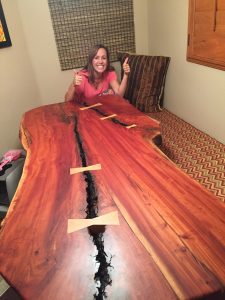
One of Bill’s reclaimed wood tables
When you’re not working, what do you enjoy doing?
I enjoy woodworking in my time off – big pieces. I recycle urban trees by milling them into large tables and bar tops.
Do you have a favorite anecdote or experience you’d like to share?
Climate change may well be the most significant crisis of our time but as overwhelming as it is there are some important but very simple solutions. Simple stoves and sustainable farms that are more productive. Agriculture is today’s biggest threat to habitats and climate change is tomorrows biggest threat to habitats, and climate change is driven heavily by agriculture. Providing every family in the world with a simple fuel-efficient stove would save billions of trees and enormously reduce emissions while saving millions of lives. There are millions of win-win solutions. You can be part of the solution by supporting sustainable agriculture or rural cook stoves. Or you can re-purpose a beautiful tree into a table or a home. Being thoughtful in what we do and how we do it can change the world.
